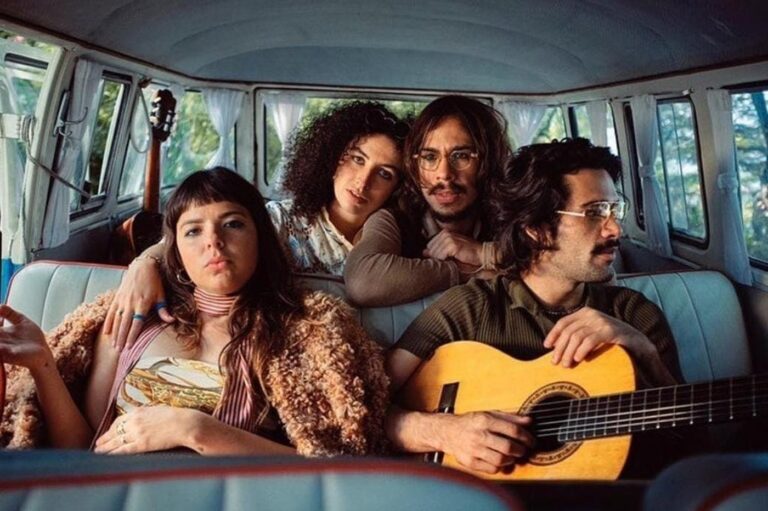There’s a local joke that the year only begins for Brazilians after Carnival. And everyone knows that a city like Rio de Janeiro lives this celebration like no other. Last month, the streets once again filled with rhythm and color, with scolas do samba and magical parades, after two consecutive years of canceling the festivity due to Covid-19. So now the people of Rio are able to reconnect and fill their bodies with music to start 2023 off right. Here’s what they’re listening to:
Of course we’ve got to start out with the mainstream. Autotune on the Rio charts, as highlighted in Pedro Sampaio’s effective hits. With a brief past as a DJ, this singer had his viral break in 2019 after collaborating with the brega funk star Felipe Original. Since then, he’s shaken the dancefloors alongside twerking masters like Anitta, Pabllo Vittar, Luísa Sonza and Thaysa Maravilha.
Hits like “Lovezinho” come as no surprise since behind that virality is the teenage TikToker Treyce, hailing from Bangu, a middle-class neighborhood on the west side of Rio. Coming from the favelas, in the south and on the outskirts of the city, we find rappers like MC Cabelinho and TZ da Coronel increasingly dominating the charts with more real stories and their own trap flow. Names like Filipe Ret, MC Poze, Orochi, L7nnon and Chefin complete the local hip-hop scene.
We can’t talk about popular music in Rio without going a little deeper into the carioca funk (also known as favela funk or baile funk). It’s based on hip-hop but also feeds on the punchy sound of Miami bass and the magnet of Afro-Brazilian rhythms, including some samba airs. Yes, it’s not directly related to funk, despite its name. It arose in the slums of the city, called favelas. Over the years it became the key sound of lower-class youth, to the point of catapulting the careers of local stars such as Anitta and Ludmilla.
We’re excited by the feat that seeks the cultural reinstatement of MPB. And we’re also excited to know that there’s a band like Gilsons, the trio made up of José Gil, Francisco Gil and João Gil, son and grandsons of Gilberto Gil respectively. They, like their songs, have one foot in Rio de Janeiro and the other in Salvador de Bahia, like a musical bridge that crosses samba roots, carioca swing and regional rhythms such as afoxé. Their video single “Várias Queixas” is not only an ode to love in its purest form, but it’s the perfect proof of this creative formula between the two cities.
Of course, there’s more music playing in Rio. It’s a magic city with a significant load of nostalgia: here are the streets, beachfront boulevards, and bars that inspired bossa nova heroes. Just as Tim Bernardes recreates new old melodies from São Paulo, we couldn’t be more excited about the rise of Bala Desejo on the Rio scene. This young band made up of Dora Morelenbaum, Julia Mestre, Lucas Nunes and Zé Ibarra combines Tropicália and MPB (Brazilian Popular Music), among other avant-garde music from the 60s and 70s.
When it comes to mixing influences and getting rid of labels, nothing better than venturing into the kaleidoscopic songs of Ana Frango Elétrico. This twenty-five-year-old singer-songwriter from Rio has released two albums and some singles where practically everything happens, from crazy samba rock to subtly indie pop, from the playful psychedelia of Os Mutantes to the popular Brazilian songbook of the 60s and 70s. She was on the bill for the local editions of the Lollapalooza and Primavera Sound festivals.
As in many Brazilian cities, reggae in Rio de Janeiro has a tradition that has lasted over time. In fact, Ponto de Equilibrio has been around for more than two decades. But today our local highlight is a big band called Zé Bigode Orquestra. Since their debut EP in 2016, they have produced two albums and other records that testify to their musical flexibility, with both instrumental and sung material, as part of a delicious mix that transcends reggae and includes jazz, R&B, Afrobeat, and MPB.


